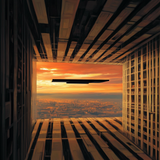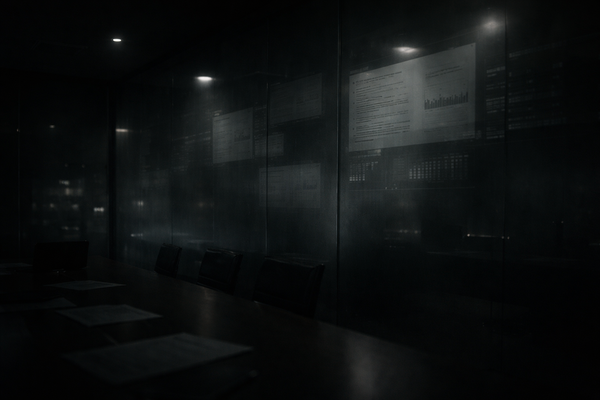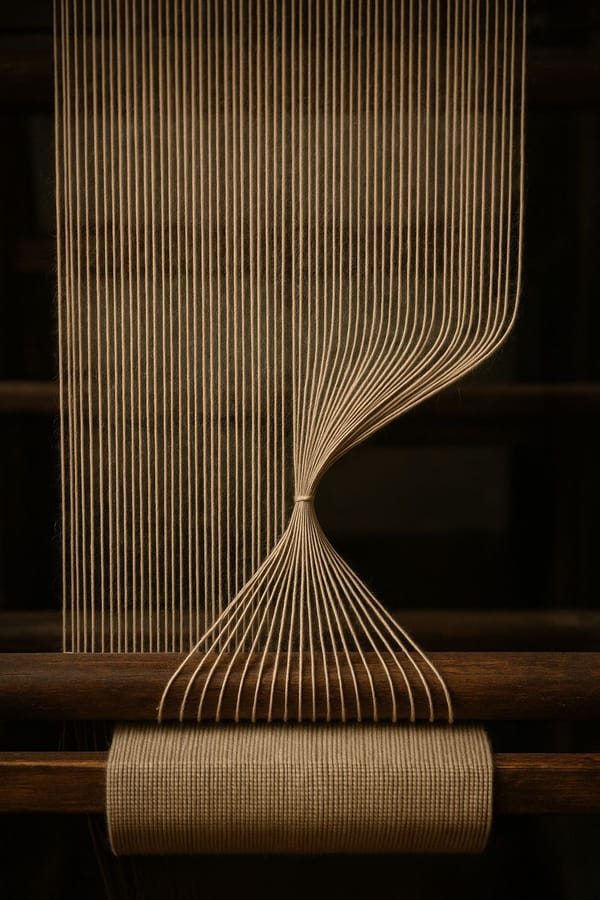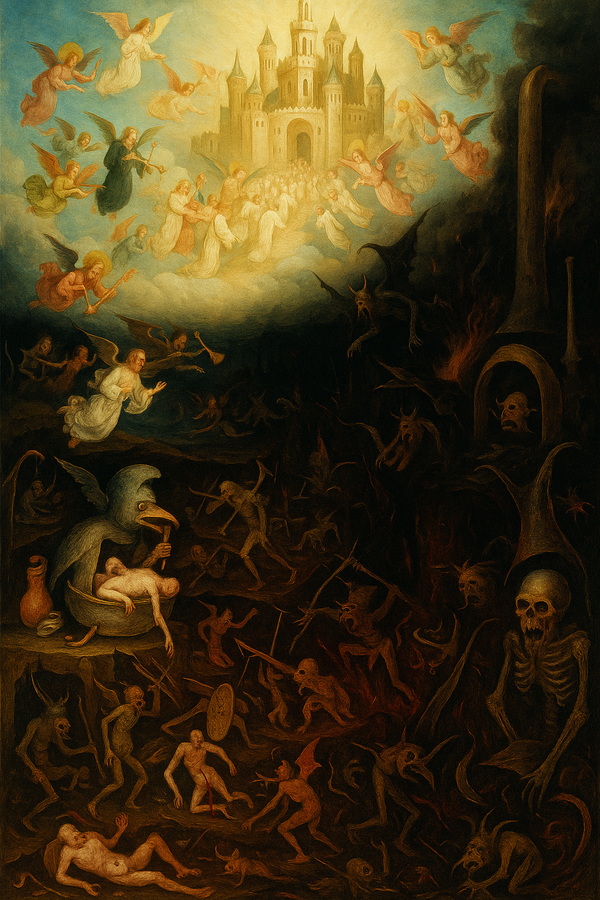Cassette Logic
A song about something that never dies but is already dead turned up on a thirty-year-old mixtape this morning. Cassette has a way of delivering what you would never think to ask for.
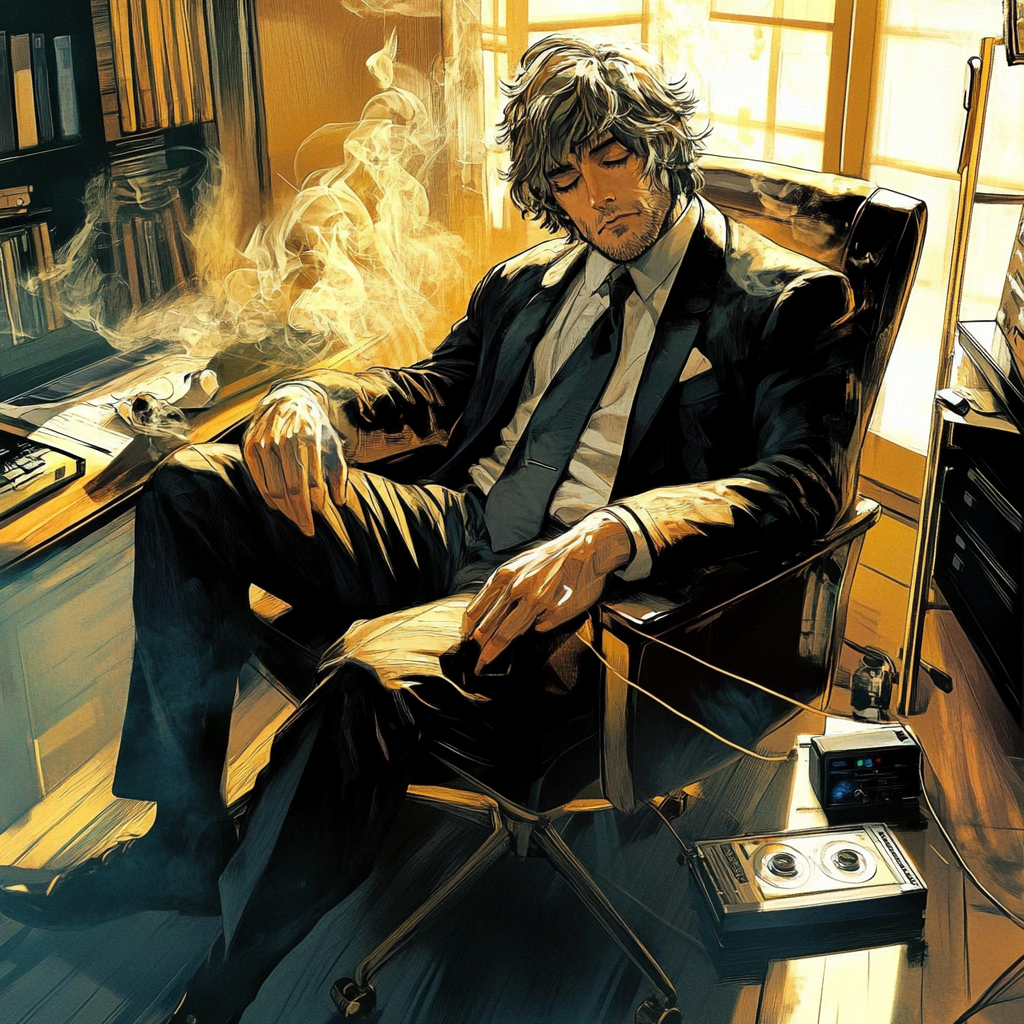
On my desk is equipment that sounds poor by any objective measure. Which makes it a reminder that the human experience is not objective either.
A pair of Audio Innovations 2nd Audio monoblocs glow softly, valves running hot enough to warm the air. They are driven by a Series 1000 pre-amp, a piece of kit from the late eighties when British valve design was quietly resurging. The sound is alive, not clinical. The valves hum faintly, flare into life, and remind you that electricity is moving through glass.
The speakers are even less ordinary. They were built by a colleague at Nokia, who kept a sideline in loudspeakers. He called them Wave Design. They are triangular half-space cabinets, cut to sit flush against a wall so the geometry itself becomes part of the acoustics. They are the only set of full-range drivers I own, and I love them not because they are flawless but because I know who made them.
The source for all of this is a Nakamichi RX-505E cassette deck. It has what must be the most elegant auto-reverse mechanism ever made: Unidirectional Auto Reverse, where the tape does not just switch direction but actually flips itself over and slides back into place. It is slow, balletic, mechanical theatre, good enough to earn a cameo in 9 ½ Weeks. Inside are three discrete Crystalloy heads and Dolby B and C noise reduction, all tuned for fidelity. By the numbers it is still behind digital. The frequency range is narrower, and the dynamic range is compressed compared to a stream. No metric puts it ahead.
And yet the experience is different.
I can tell streaming services exactly what to play, and often do. I listen to plenty of niche recordings that the algorithm would never surface. But tapes pull me in another direction. A car boot box, a forgotten mix, a release I would never have chosen online. The selection is not better, it is simply different, and that difference shapes the way I hear it.
Context matters most. The music I listen to on cassette was produced with cassette and FM radio in mind. That was how people first heard it. The mixing, the mastering, even the dynamic range were shaped by those limits. To play those recordings today in lossless quality is not wrong, but it removes part of the frame they were created for.
Psychologists would say this is no accident. Music is one of the strongest triggers of autobiographical memory, sharper than photographs or words. These memories arrive with detail: where you were, who you were with, how it felt. Often they come uninvited, pulled out by a song you would never have thought to choose. That is not just nostalgia, it is how memory works. Music ties context to identity, stitching the present back to the past.
I remember it with Oasis too. What’s the Story Morning Glory? came out when I was thirteen, and for a short-lived phase I had a long walk to play basketball at a nearby American airbase. It must have been forty minutes each way, though at the time it felt longer. The walk didn’t matter, because the album was the journey. I could nearly listen to it end to end there and back, and I probably did every single time. What I heard then, decidedly lo-fi, is still how I recall it now.
Ritual plays its part too. Valves warming, the clunk of a tape loading, the pause before sound begins. These are small ceremonies that give weight to listening. I like similar moments in other corners of life: a safety razor on the skin, a newspaper folded across a table, a record arm lowered by hand. They are not efficient, but efficiency is not the point. Still, ritual alone can tip into performance. It is context that keeps the experience grounded.
It makes me think of film. I adore watching Lawrence of Arabia remastered from the original 65mm in all its glory on a 4K laser projector. That feels right, because nothing has been altered. It is simply a magnificent print of what was always there.
Star Wars is different. The constant revisions change what people originally saw. The most obvious case is Han Solo in the cantina. In 1977 he shot Greedo without hesitation. Twenty years later the scene was re-edited so Greedo shoots first, softening Han’s edge. The picture is sharper, the effects cleaner, but the character is no longer the same. A version of history gets overwritten.
It is the same with albums. A good remaster can be like Lawrence of Arabia on a fresh 65mm print: clearer, cleaner, but faithful to what was always there. You hear details that were hidden before, but the intent remains intact. Other remasters feel more like Han Solo in the cantina. Compression gets pushed, dynamics flattened, mixes reshaped for loudness or fashion. What comes out the other end is not simply the same album in higher resolution but a different statement altogether.
Cassette sidesteps that entirely. What it preserves is not only the music but the hand of the people who made it. The engineers who mixed for radio, the producers who worked within the limits of tape, the friend who pressed record on a mixtape. Their handwriting still lingers on labels, their choices remain etched into the signal. To hear it now is to hear them, not just the song.
That unpredictability is part of the appeal. I have just ordered a job lot of “rock” cassettes from the seventies and eighties. One hundred and twenty-five albums, bought on eBay under a listing that simply read: Large Collection Of 125x Rock Album Cassettes Job Lot 70’s 80’s 90’s. No track list, no photographs beyond a couple of blurry spines. I recognise some names, but most will be a surprise. And I do not mind. That is the joy of it. When else would you buy a hundred records with such abandon?
Right now the cassette playing is Annie Lennox’s Love Song for a Vampire, on a mixtape my wife made when she was a child, or maybe her brother did. Either way it has been sitting in a box for thirty years. A song about something that never dies but is already dead, still playing now through valves and tape. It sounds spectacular, and I would never have thought to listen to it otherwise this morning.
That is the point. Cassette brings you things you did not choose but which arrive all the same. A box find, a forgotten mix, a soundtrack from the past. Like this tape, they survive not because they are constantly remade, but because they keep showing up in the form they first took.
